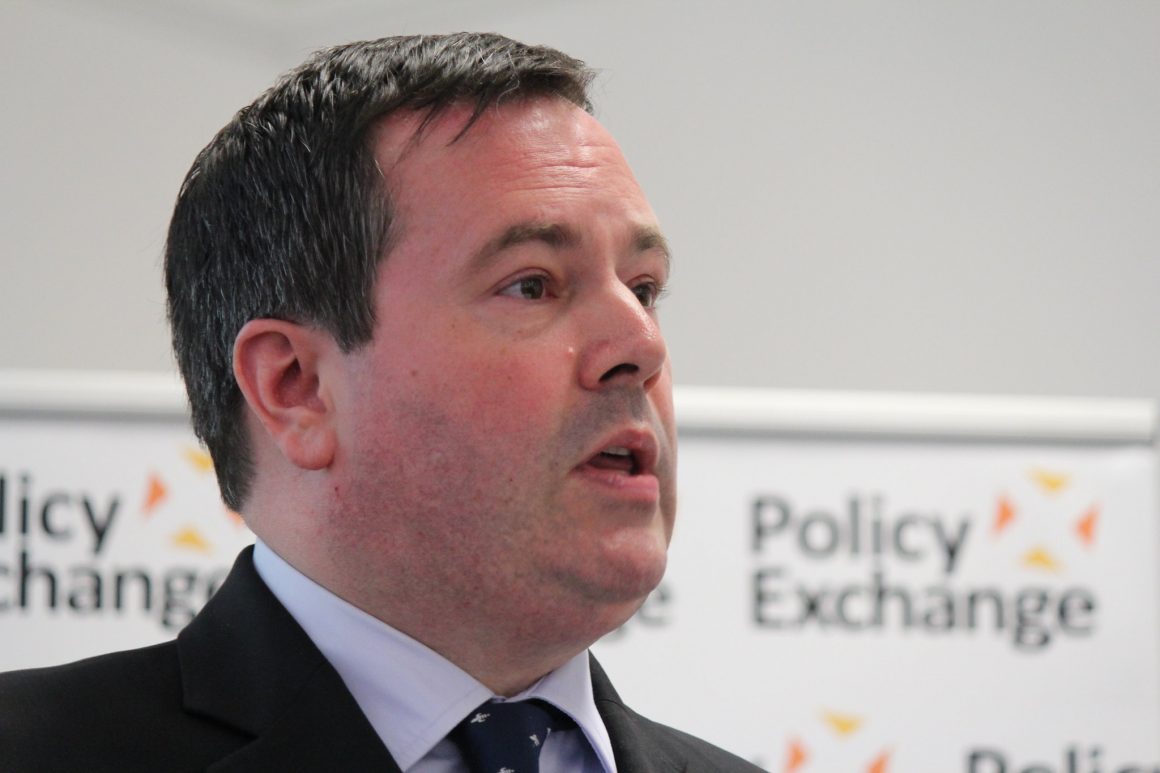
Orange crushed: How the balance of power swung back to the political right in the 2019 Alberta election
By Jason Herring, April 25 2019 —
With the dust settled and ballots counted from the 2019 Alberta election, Rachel Notley’s New Democratic Party goes down in history with an unenviable distinction — being the only party in Alberta’s history to fail to win a second term of government.
The April 16 election ended with a hefty majority for Premier-elect Jason Kenney and the United Conservative Party, who won 63 seats to the NDP’s 24, earning nearly 55 per cent of the popular vote. What happened in this election to cause such a drastic shift?
According to University of Calgary political science professor Anthony Sayers, the biggest factor in the UCP’s landslide victory was a united right in Alberta. In the 2015 provincial election, the Wildrose and Progressive Conservative parties split the conservative vote, prompting their merge into the UCP in 2017.
“[The NDP’s] vote was not that much less than last time and they lost by a good deal and that was because the right was divided into two parties,” Sayers said. “[The result was] inevitable within the bounds of what we can normally predict.”
The strength of the UCP’s win, however, was a little less predictable. Sayers says that when two parties merge, their combined vote typically decreases. This wasn’t the case in this election, something Sayers says is due to other factors, including the province’s economic climate.
“I think those other things were that the economy is sluggish and taking a long time to recover and jobs are still hard to find for many people,” he said. “The narrative that we need change to improve things was at least believable for enough people — more than half the population, which is very unusual.”
Much of the election was characterized by scandals, with two UCP candidates — Caylan Ford and Eva Kiryakos — dropping out of their races after social media posts and messages from the candidates showing white supremist and anti-immigrant views emerged. Other scandals included the “kamikaze” campaign, in which Kenney allegedly collaborated with a third candidate to damage the UCP leadership chances of his main opponent, Brian Jean.
Despite a multitude of scandals, plus an attack-heavy campaign by the NDP, the UCP out-performed the polls on election day.
David Moscrop, a communications postdoc at the University of Ottawa and author of the book Too Dumb for Democracy? Why We Make Bad Political Decisions and How We Can Make Better Ones, says that it shouldn’t come as a surprise that the UCP weren’t toppled by the myriad bozo eruptions.
“It was a reaffirmation that scandals during the campaign aren’t necessarily fatal. While people might find certain elements of your campaign disconcerting or even deplorable, it doesn’t mean that they will discount the party or the leader altogether,” Moscrop said. “There was just no way [Kenney] was going to lose. The structure of the province is so deeply blue, for all kinds of historical, cultural and economic reasons, that it becomes very hard to uproot that.”
Because of this, Moscrop argues that the Notley campaign’s focus on attacking Kenney and the UCP was a reasonable tactic, albeit one that came up short.
“Given that the UCP were the heavy favourites and there was very little if anything that the NDP could have done to win, it stands to reason that they had to go on the offensive on day one, because they were behind,” he said. “That’s fairly hard to do when the structure is against you. You can try to do that by running a positive policy campaign, but it would’ve had to look basically like the UCP to capture the voters. At which point, people are gonna say, ‘I don’t need the diet, I’ll just go for the regular.’ ”
In contrast, Sayers believes that the Notley campaign’s almost singular focus on attacking the UCP was a strategic mistake.
“I don’t think that attacking Jason Kenney was the problem, myself. What it was was not having a more clearly defined alternative to Jason Kenney besides Rachel Notley. Notley herself was a fair alternative but that really played on one dimension only, which was leadership,” Sayers said. “Usually with leadership, you embody a visual of positive things, peoples’ dreams and aspirations. There wasn’t much of that and I think that’s maybe where the NDP may have missed the boat.”
The solace for Notley, according to Sayers, is that she will remain in legislature as the leader of the opposition.
“That Rachel Notley is staying is good for Alberta, that a leader of her standing and skill set will be around to keep the government honest,” he said. “That’s how this is supposed to work. You’re supposed to have robust oppositions.”
What’s next for Alberta? Moscrop says he doubts that Kenney will be able to change many things he pointed to in his campaign as detrimental to Alberta’s economy, including equalization, the price of oil and getting a pipeline built. This is because the Kenney government will likely have a prickly relationship with Prime Minister Justin Trudeau’s Liberals, foreshadowed by the UCP’s anti-Trudeau rhetoric during their campaign.
“I can’t for the life of me see Kenney’s way to a different equalization formula or to pipelines without building a relationship with the federal government, which Rachel Notley tried to do with a decent balance of carrot and stick,” Moscrop said. “For Kenney, the way forward seems to be all stick.
“Kenney’s written some pretty big cheques that he’ll now have to cash and I’m not sure that he has the balance to see them through.”
